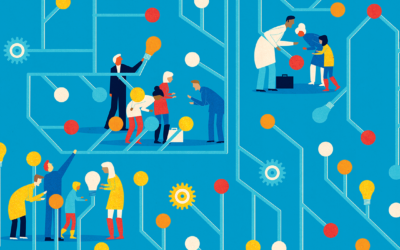Innovation, Equity & The Future of Prosperity
How can innovation be beneficial to all?
The benefits of innovation tend to be concentrated to a limited number of industries, regions, and groups. Innovation that exacerbates inequality can undermine public support for science and innovation and contribute to broader political alienation. The Innovation, Equity & the Future of Prosperity program brings together economists, political scientists, engineers, and historians to examine how the policies used to generate and diffuse innovation affect the distribution of opportunities and outcomes in society.
IMPACT CLUSTERS
The Innovation, Equity & the Future of Prosperity program is part of the following CIFAR Impact Clusters: Building Thriving Societies and Exploring Emerging Technologies. CIFAR’s research programs are organized into 5 distinct Impact Clusters that address significant global issues and are committed to fostering an environment in which breakthroughs emerge.
RESEARCH AND SOCIETAL IMPACT HIGHLIGHTS
Shaping the future of innovation
Program Co-Director Dan Breznitz (University of Toronto) served as the Clifford Clarke Economist of the Government of Canada and advised on a number of files, among them the creation of the Canada Innovation Corporation, announced and funded in Budget 2022. This is the first effort to create an independent experimental learning public agency at the federal level.
New findings on innovation and employment
CIFAR Fellow Keun Lee (Seoul National University) uncovered how innovation affects employment by using South Korean data to untangle the effects of process versus product innovation on employment and wages. Through this work, Lee demonstrated that on the sectoral level, product innovation has positive employment effects while process innovation is virtually neutral — these findings will have major implications for the future of work.
Founded
2019
Partners
The British Academy
Supporters
Alfred P. Sloan Foundation, Max Bell Foundation, Scotiabank
Interdisciplinary Collaboration
Economics
Political Science
Sociology
Engineering
History
Law
Legal Studies
Public Policy
Social Policy
CIFAR Contact

































